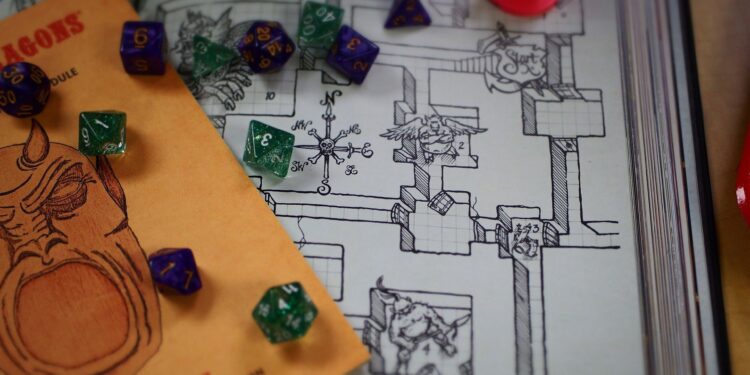Credit: Pixabay/CC0 Public Domain
Dungeons and Dragons is a hugely popular role-playing game enjoyed by millions of people around the world, in person and online, every day.
However, new research has shown that it could be particularly beneficial for autistic people, providing them with a safe space to engage in social interactions away from some of the challenges they face in their daily lives.
The study, published in the journal Autismwas conducted by researchers from the School of Psychology at the University of Plymouth in collaboration with colleagues from Edge Hill University and Dalarna University in Sweden.
The researchers worked with a group of autistic adults and investigated whether finding a social situation in which people felt comfortable could help them excel.
After an initial familiarization with Dungeons and Dragons, participants, under the guidance of a game master, played scenarios in small groups for six weeks.
They were then asked individually by the researchers about how they felt their autism may have interacted with their experiences and, therefore, what impact their participation in the game had had on their lives.
In these interviews, participants spoke at length about their social desires and motivations, but they also discussed the difficulties they faced in doing so, such as a lack of confidence in communicating with others and uncertainties about how others would perceive them. This often led them to mask or hide autistic traits.
Playing Dungeons and Dragons, they said, provided them with a friendly environment in which they quickly felt an innate sense of kinship with other participants.
Understanding common issues related to activities inside and outside the game allowed them to relax without feeling pressure to act in a certain way and, as a result, they felt included in group interactions and able to contribute better to them.
Participants also felt like they were able to adopt some of their new character’s traits outside of the game, which made them feel different.
Dr Gray Atherton, Professor of Psychology at the University of Plymouth and lead author of the study, said: “There are many myths and misconceptions about autism, some of which suggest that people with the condition are not socially motivated or have no imagination. Dungeons and Dragons goes against all of this, focusing on teamwork, all set in a completely imaginary environment.”
“Participants in our study saw the game as a breath of fresh air, a chance to take on another persona and share experiences outside of an often difficult reality. This sense of escapism made them feel incredibly comfortable, and many of them said they were now trying to apply aspects of the game in their daily lives.”
Dr Atherton and Dr Liam Cross, also a lecturer in psychology at Plymouth and lead author of the current study, have been working for many years to understand the impact of games on people with autism and other similar conditions.
Another recently published study showed that people with autism enjoy board games because they reduce the pressure of uncertainty around meeting and interacting with people, removing the need for small talk.
Dr Cross added: “Autism has a lot of stigma attached to it, which can lead to people being judged or looked down upon. We also hear from many families who are concerned that autistic teenagers are spending too much time playing video games, for example. A lot of the time this is because people have an image in their head of how an autistic person should behave, but this image is based on neurotypical experiences.”
“Our research has shown that there are everyday games and hobbies that autistic people not only enjoy, but that also help them build confidence and other skills. This may not be the case for all autistic people, but our work suggests that these can provide autistic people with positive experiences that are worth celebrating.”
More information:
Gray Atherton et al, A Critical Hit: Dungeons and Dragons as a Buff for People with Autism, Autism (2024). DOI: 10.1177/13623613241275260
Provided by the University of Plymouth
Quote:Study shows Dungeons and Dragons can help people with autism gain confidence and find their inner hero (2024, August 27) retrieved August 27, 2024 from
This document is subject to copyright. Apart from any fair dealing for the purpose of private study or research, no part may be reproduced without written permission. The content is provided for informational purposes only.



